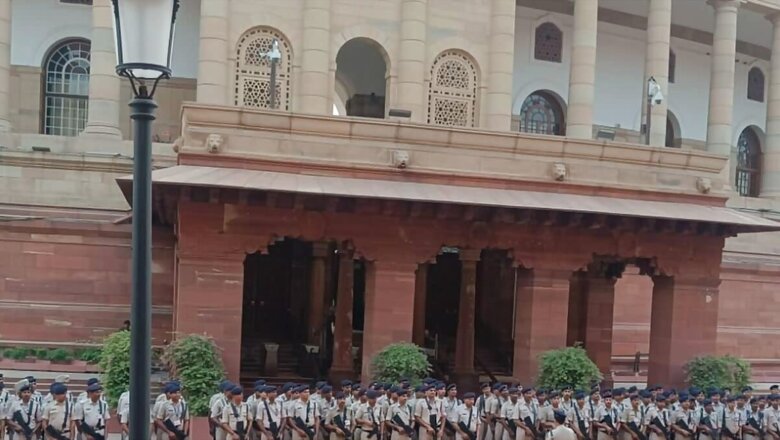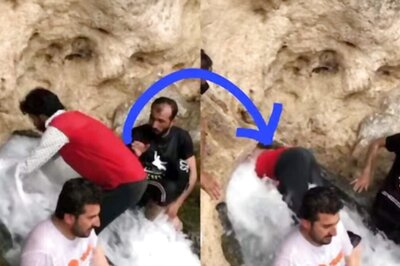
views
It took nearly 13 years to deploy, plan and train the dedicated Parliament Duty Group (PDG), but within 10 years, the unit has been disbanded. Friday marked the last day of duty for approximately 1,400 jawans who have been guarding the Parliament building since 2013.
An official communication informed them that they had to vacate their current duties following a security lapse. Members of the specialised group expressed surprise and disappointment at the abrupt and “ungraceful" end to their mission.
The exit followed an inquiry into a security lapse at Parliament, led by Anish Dayal Singh, Director General (DG), Central Reserve Police Force (CRPF), and other security experts, which recommended restructuring of the Parliament building’s security.
“We have been guarding the Parliament building for a very long time. Within five months, everything took a turn for the worse, and the jawans were asked to surrender their duties and look for new tasks. The committee, tasked with conducting an inquiry into last year’s security lapse, was headed by the DG CRPF, but it was decided that the Central Industrial Security Force (CISF) is more suitable than the CRPF to protect the building," an official told News18 on condition of anonymity.
Sources told News18 that the CISF, with almost 150% more troops than the PDG, is now deployed at the Parliament building. The government was not keen on a multi-force structure, as also suggested by the committee. As the CRPF is not specialised in guarding institutions and buildings, it was decided to deploy the CISF, which is a specialised guarding force. The CISF is deployed at all vital institutions, key airports including Delhi, Mumbai and Bengaluru, and buildings of the Ministry of Home Affairs, Ministry of Finance, etc.
NOT THE ONLY EXIT
The CRPF has seen exits from various key installations, including the Jammu, Srinagar and Leh airports and the Kot Bhalwal Jail. The CRPF used to send jawans from J&K and Maoist-hit areas so that in case of any adverse situation, they could handle it easily. It also allowed jawans to spend some days with their families.
WHY THE CHANGE?
On December 13 last year, intruders managed to enter the Parliament building with smoke canisters.
In this major security breach, on the anniversary of the 2001 Parliament terror attack, two persons — Sagar Sharma and Manoranjan D — jumped into the Lok Sabha chamber from the visitors’ gallery, set off yellow-colored smoke from canisters and shouted slogans before being overpowered by some MPs and watch and ward staff. Around the same time, two other accused — Amol Shinde and Neelam Devi — also sprayed colored gas from canisters, while shouting ‘Tanashahi nahi chalegi’ outside Parliament premises.
Sagar, Manoranjan, Amol and Neelam were immediately taken into custody, while their accomplice, Vishal, in whose house the accused stayed before reaching Parliament, was detained later from Gurugram. Lalit Jha and Mahesh Kumawat were arrested later.
Subsequently, at the request of the Lok Sabha Secretariat, the Ministry of Home Affairs (MHA) ordered an inquiry into the Parliament security breach incident. The inquiry committee was set up under the chairmanship of Anish Dayal Singh.
Explore in-depth coverage of Lok Sabha Election 2024 Schedule, Voter Turnout, Upcoming Phase And Much More At News18 Website




















Comments
0 comment